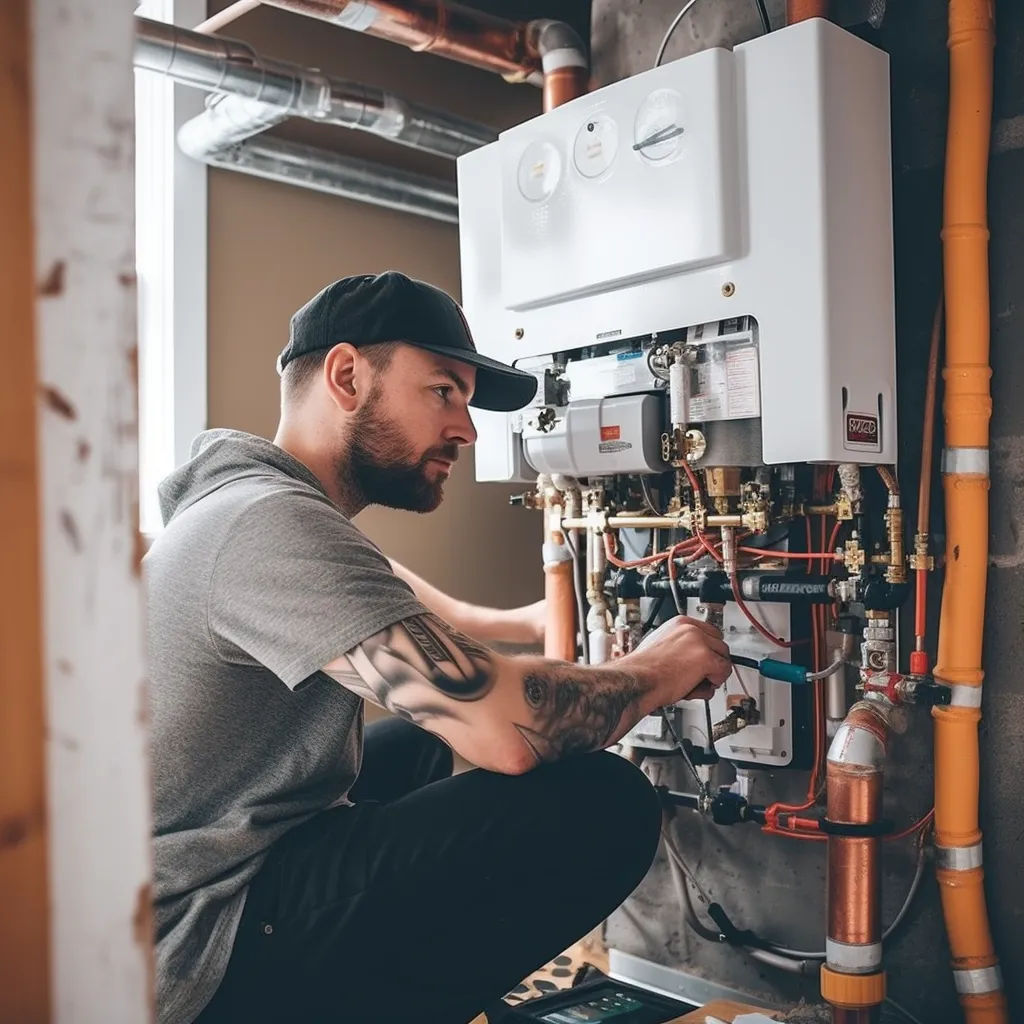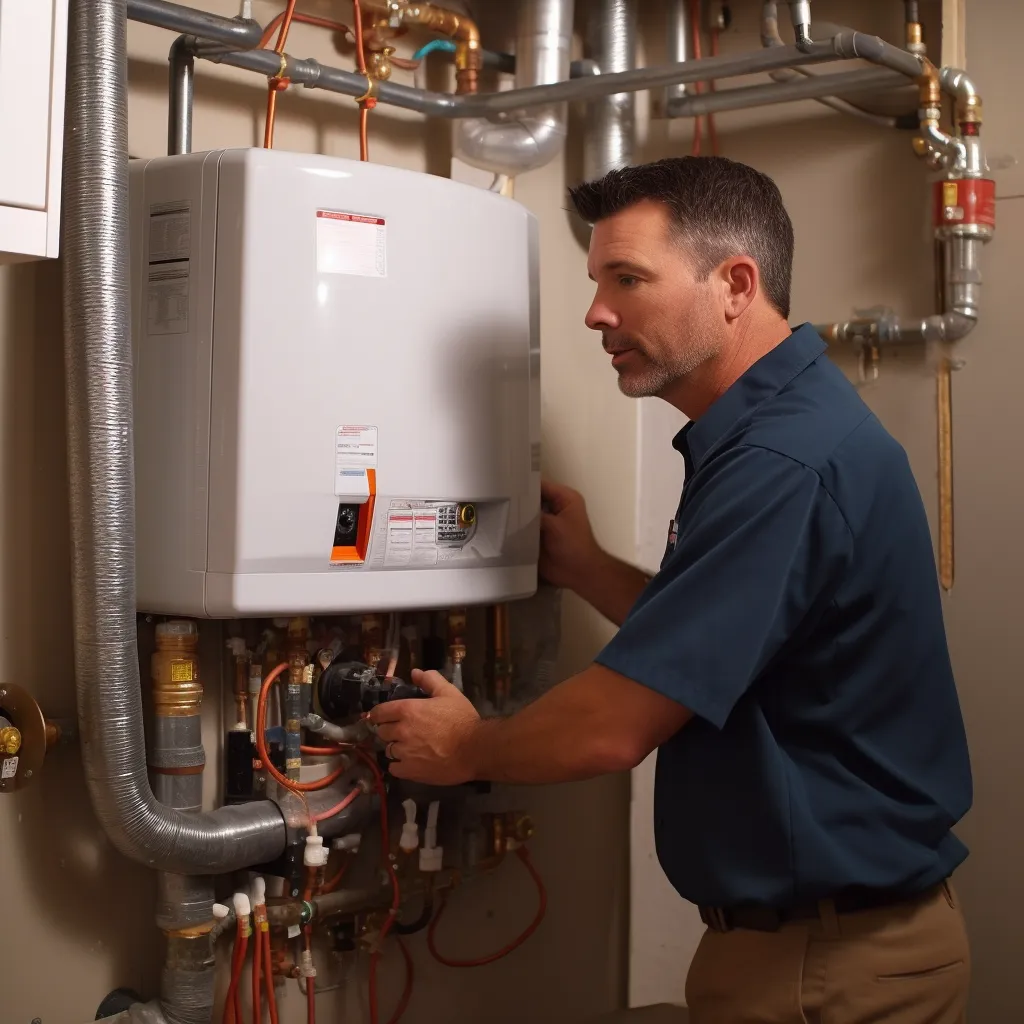Everything You Need to Know About San Mateo Water Heater Replacement Cost
Water heater replacement is indeed an important decision, and being aware of the costs involved is essential. Whether you opt for an electric or gas water heater, understanding the potential expenses is crucial for budget planning. By conducting thorough research and gathering information about cost factors, you can make an informed decision that aligns with your financial goals while ensuring a dependable and efficient hot water system for your home. Taking the time to assess the costs will help you find the right water heater replacement solution that meets both your needs and budget.

When do you need to replace a water heater?
Recognizing the right time for water heater replacement is vital to ensure a steady supply of hot water in your home. Several crucial factors can help you make this determination:
Age: Consider the age of your water heater; units typically last 8-12 years. If it's older than this range, replacement might be necessary.
Corrosion: Check for rust or corrosion on the tank, as it could indicate the need for a replacement.
Leaks: While some leaks can be fixed, others may require replacing the entire unit.
Insufficient hot water: If you notice a decrease in hot water supply or running out of hot water faster than usual, it might be time for a replacement.
To maintain a reliable hot water supply, proactive measures are essential rather than waiting for your old water heater to fail. Regular maintenance, including flushing the tank to remove sediment, checking for leaks, and inspecting the heating elements, can extend its lifespan. Also, being attentive to signs like age, corrosion, leaks, and insufficient hot water will help you address any problems before they escalate. By taking these steps, you can ensure the optimal performance and longevity of your water heater.

What affects the cost of replacing a water heater?
The cost of replacing a water heater can be influenced by various factors, and it's essential to consider them when planning your budget. Consulting a professional is advisable as they can provide accurate estimates and personalized guidance based on your specific needs and circumstances. By doing so, you can make an informed decision and ensure a smooth and cost-effective water heater replacement process.

Water heater type: The cost of replacement can vary depending on whether you choose a tankless or traditional tank model, as well as their respective sizes and energy efficiency ratings.
Size of the unit: Larger water heaters generally have a higher price due to their increased capacity and materials required.
Extras: Additional features like automatic shutoff valves or pressure relief valves may add to the overall cost of replacement.
Installation costs: The complexity of the project, additional materials needed, and the installation of new pipes or venting systems can impact the overall cost.
Labor costs: Professional plumbers' fees, which may be based on an hourly rate or a flat fee, will also contribute to the total cost of replacement.


Replacing with energy-efficiency in mind
Investing in an energy-efficient water heater has big benefits:
Long-Term Savings: Although energy-efficient water heaters might have a higher initial cost, the long-term savings on energy bills make them a cost-effective investment.
Rebates and Incentives: Some regions offer rebates and incentives for installing energy-efficient appliances, making the switch more financially appealing.
Increased Home Value: An energy-efficient water heater can add value to your home, making it more attractive to potential buyers if you decide to sell.
Extended Lifespan: These water heaters often have better construction and materials, resulting in a longer lifespan compared to less efficient models.
Improved Performance: Energy-efficient water heaters utilize advanced technology, leading to faster heating times and more reliable operation.
Reduced Maintenance: With improved performance and durability, energy-efficient water heaters may require less maintenance and repair over time.
Environmental Responsibility: Investing in energy-efficient appliances demonstrates your commitment to sustainability and responsible energy consumption.

How to calculate the size
of the water heater you need for your home
Consulting with a professional is advisable when determining the right size for your hot water heater. They can assess your individual requirements and offer personalized recommendations based on factors such as:
Number of people in your household: Larger households typically require a larger capacity water heater to meet the demand for hot water.
Hot water usage patterns: If you use hot water for multiple tasks like laundry, dishwashing, or have multiple bathrooms, a larger tank may be necessary to ensure an adequate supply.
Climate: In colder regions, you may need a larger tank to compensate for the colder incoming water temperature and maintain sufficient hot water.
Available physical space: Consider the space available for installation and ensure the selected size fits comfortably in the designated area.


Research the different types of water heaters
When considering a water heater for your home, you have several options to explore. Traditional tank water heaters store and heat a large volume of water in a tank until it's needed. Tankless water heaters, on the other hand, provide hot water instantly without the need for a storage tank. Hybrid water heaters combine features from both tank and tankless systems, offering energy-efficient operation and a continuous supply of hot water. Solar water heaters utilize the sun's energy to heat water, reducing reliance on conventional energy sources. Heat pump water heaters are also energy-efficient, extracting heat from the surrounding air or ground to warm the water. By evaluating your household's specific needs, energy efficiency goals, and budget, you can determine the most suitable type of water heater for your home.

Cost of each type of water heater
Consider these options when choosing a water heater:
Traditional tank heaters: Affordable upfront, but higher energy bills and shorter lifespan.
Tankless heaters: Longer lifespan, lower energy bills, but higher upfront costs.
Heat pump heaters: Moderate prices and significant long-term savings.
Solar heaters: Environmentally friendly and cost-effective in the long run, but expensive upfront.
Smart heaters: Innovative models with remote control capabilities and energy-saving features.
Condensing heaters: Highly efficient, but with a higher price tag.
Gas vs. electric models: Gas heaters have lower upfront costs, while electric heaters can be more energy-efficient.
Direct vent vs. power vent models: Direct vent water heaters are more affordable, while power vent models are slightly more expensive.
Cost of installation and ongoing maintenance

Water heater installation and maintenance costs can vary depending on the type of water heater and specific factors. Traditional tank heaters usually have lower installation costs but may require higher ongoing maintenance. Tankless heaters, on the other hand, may have higher installation costs due to additional requirements like venting and electrical upgrades but generally require less maintenance. Solar water heaters can be expensive upfront but have lower maintenance costs and provide long-term energy savings. Smart water heaters may require professional installation, and ongoing maintenance may be needed for their advanced features. The complexity and venting requirements of condensing heaters can contribute to higher installation costs. To get accurate cost estimates, it's best to consult with a licensed professional.

How to get an accurate estimate
for the cost of a water heater
Determining the total cost of replacing your water heater, including installation, requires careful research and consideration of various factors:
When choosing a water heater for your home, consider factors such as your household size and hot water usage patterns to determine the most suitable size and type. A larger household with higher hot water demands may require a larger capacity water heater to meet those needs.
To determine the installation and upgrade costs for your water heater system, it's a good idea to obtain quotes from local plumbing companies. Contact several reputable plumbing companies in your area and request quotes for the specific water heater type and size you are considering.
When considering the cost of a water heater, it's essential to factor in the price of the unit itself. Different types of water heaters, such as tank-based, tankless, heat pump, or solar heaters, have varying price ranges. Additionally, the size and brand of the water heater can influence its cost.
Tips to save money on installing a new water heater
Explore these money-saving tips when acquiring a new water heater:

Compare prices from various retailers and plumbing companies to find the best deal.
Check if your local utility company offers rebates or tax credits for energy-efficient water heaters.
Opt for an energy-efficient model to save on monthly utility bills over time.
Consider the total cost of ownership, including maintenance, repairs, and energy consumption.
Look for bundle deals or promotions from manufacturers or retailers.
Exercise caution when considering a used water heater, and inspect it thoroughly before purchasing.
Hire a professional for water heater installation to ensure proper and safe setup.
What to do if you need services
to replace your water heater
When facing a failing water heater and considering a replacement, hiring a licensed water heater professional is the best course of action. Here are some tips to guide you in choosing the right expert for the job:
Verify the professional's credentials and ensure they are licensed and certified to work on water heaters.
Seek recommendations and read reviews from previous customers to gauge the professional's reputation and reliability.
Request quotes from multiple professionals to compare pricing and services offered.
Inquire about their experience and expertise in handling the specific type and brand of water heater you have.

A reliable professional will be able to:
Our water heater services are designed to meet all your needs:
Our experts will assess your water heater to identify whether repair or replacement is necessary.
You'll receive a detailed estimate, covering labor, materials, and applicable taxes.
We'll guide you in selecting the most suitable water heater, considering factors like size, efficiency, and price.
Our experienced technicians will handle the entire installation process, from removing the old unit to setting up the new one seamlessly.
We take pride in our workmanship and the quality of parts used, offering warranty coverage for added peace of mind.


Water heaters don't last forever
Determining the right time for water heater replacement or maintenance is crucial. The lifespan of a water heater usually varies from 6 to 12 years, influenced by usage and efficiency. Replacement costs depend on factors like water heater type, size, installation, maintenance fees, and potential savings from rebates or warranties. Thorough research and comparison of various models will aid in making an informed decision. Seeking guidance from a licensed professional can save time and money in the long run.
Contact Us
GET IN FULL TOUCH
PHONE: (650) 337-0872
EMAIL:
ifran@waterheatersinsanmateo.com
All Pro Plumbing and Rooter
San Mateo, CA 94401
